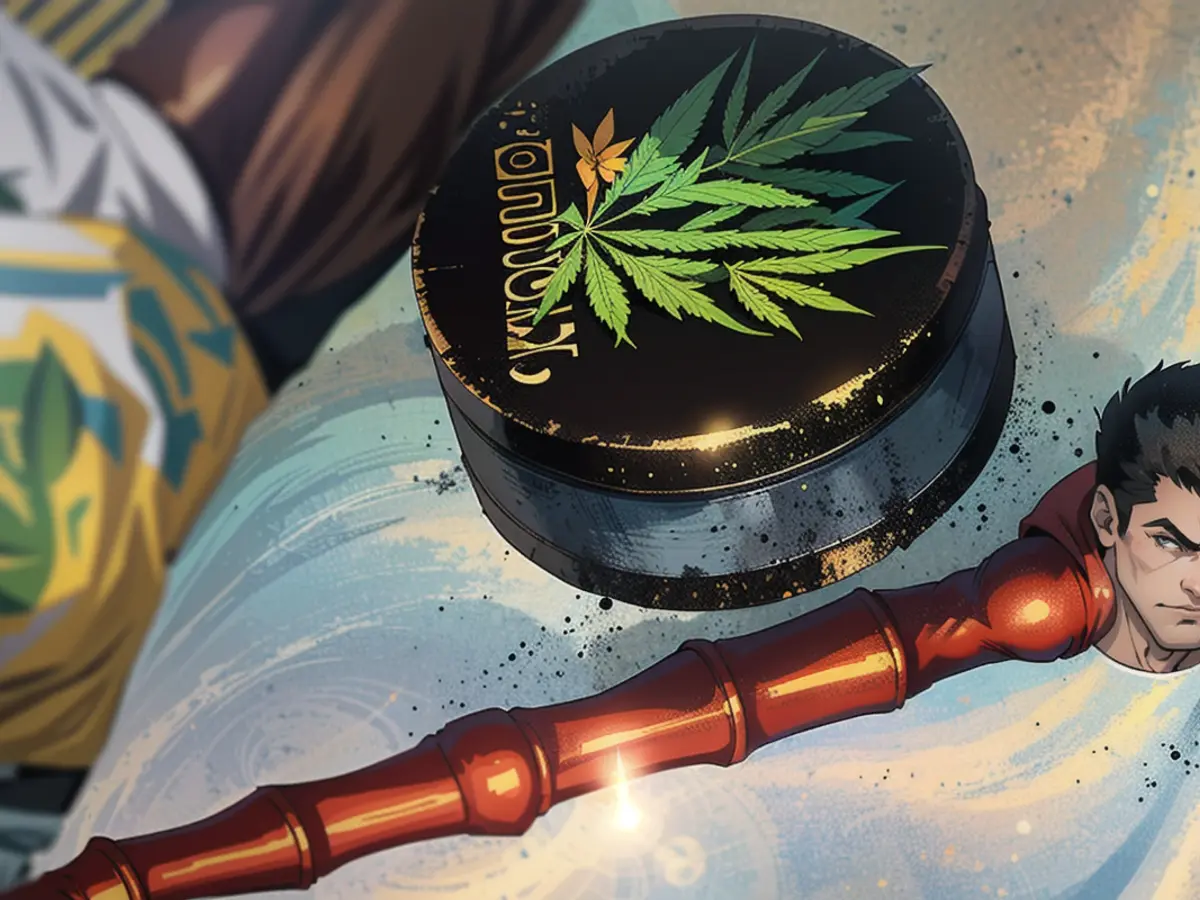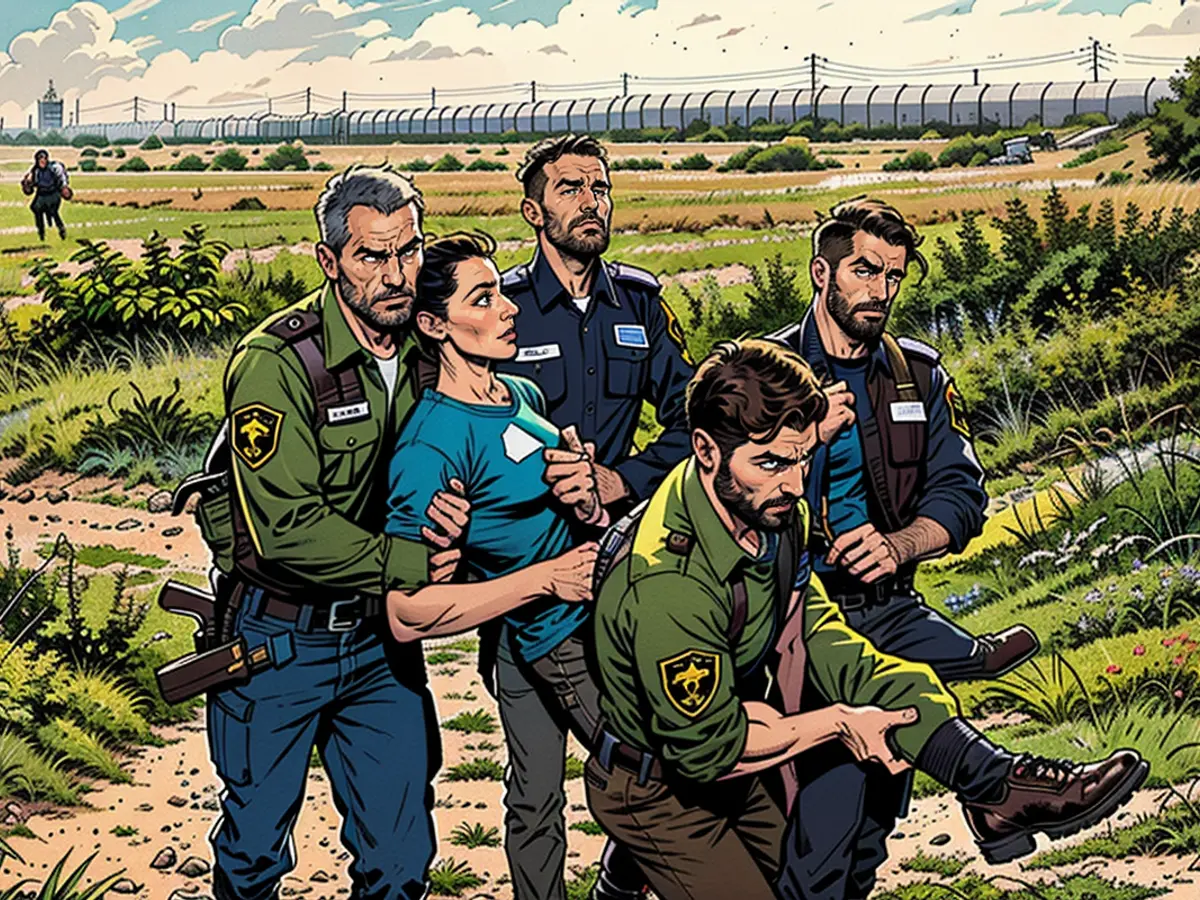Greater risk for cannabis-induced psychosis than previously thought.
The legalization of marijuana in Germany has been met with both celebration and criticism. A global study has discovered a direct correlation between marijuana use in teenagers and the emergence of psychosis: their chances of developing a psychotic disorder are 11 times greater.
Marijuana has been shown to harm the immature brains of teenagers according to previous studies. The link between teen marijuana usage and psychotic disorders may be stronger than initially thought, as per a paper published in the "Psychological Medicine" journal. Most adolescents diagnosed with a psychotic disorder have a history of marijuana use, according to this study.
Patients with psychotic disorders typically experience impaired perception, altered physical experiences, and may have visual or auditory hallucinations. Concentration and learning abilities are hampered, and the ability to feel emotions is muted. They often struggle with being overwhelmed by environmental stimuli.
A psychotic disorder can heal completely in a matter of weeks after abstaining from drugs. However, relapse is highly likely if drug consumption continues. The impacts of schizophrenia, a severe form of psychotic disorder, are long-term and more intense, says Thomasius, a child and adolescent psychiatrist. In extreme cases, paranoid thoughts can result in lethal violence.
The hypothesis that earlier studies underestimated the link is due to the weaker potency of cannabis in the past, as researchers suggest. The average THC content of marijuana in Canada has grown from about 1% in 1980 to 20% in 2018, while new forms of potent marijuana products like extracts with over 95% THC have become more popular.
High-potency cannabis is not readily available in Germany, but their content is estimated to be around 15%. Although the marijuana legislation stipulates that THC levels in cannabis supplied to 18 to 21-year-olds should not exceed 10%, it is challenging for authorities to regulate this. The law mandates that controls are "occasional" at most.
The escalated THC levels are concerning, as users consume similar amounts of marijuana as before, but now experience more THC. Cannabis sativa contains over 60 cannabinoids, with THC being the most potent psychoactive substance. These cannabinoids interact with receptors throughout the body.
Experts argue that THC has a specific influence on the brains of adolescent users. During teenage years, when the brain is still developing, the organ is at a higher risk of destabilization. The research team in Canada suggests that THC disrupts nerve fiber connections and affects white matter development in the brain.
The documented consequences of routine marijuana use during teenage years include a higher risk of psychosis, a potential loss of ten IQ points, and a decline in comprehension and concentration abilities. Up to a third of the connections in the frontal brain, the region responsible for functions such as thinking, reasoning, and emotion regulation, may be lost during this time if marijuana is consumed.
"The risk of anxiety disorders and depression is also higher," says Thomasius. But the dangers extend beyond the users, as impaired driving ability from marijuana intoxication endangers other people. "In the US, the number of serious traffic accidents involving marijuana has doubled or even increased tenfold since legalization," he adds.
Thomasius also explains that young people are often unaware of these risks, as they have not been adequately communicated. Recent analyses have shown a decreasing risk perception of health damage from marijuana use in the US and Europe. Teenagers' awareness of self-care is lower, making them more vulnerable to the side effects of marijuana.
Finally, Thomasius contends that the legalization of marijuana creates a trivializing effect and sends the wrong message. "We can predict an increase in the incidence of psychosis," he warns, and once psychosis occurs, it can lead to lifelong vulnerability to drug use. As he points out, "Once psychosis has happened, you're more likely to go back to using drugs."
In their research, André McDonald and Susan Bondy from the University of Toronto combined population-based survey data from 2009 to 2012 with healthcare records up to 2018. Over 11,000 individuals aged 12 to 24 at the study's start and without a prior history of psychotic disorders were considered participants.
During the study, over half (5 out of 6) of the adolescents aged 12 to 19 who sought help for psychotic disorders in hospitals or emergency rooms reported using cannabis. This could have been underreported as recreational cannabis use was still prohibited at the time in Canada. No strong correlation was observed for young adults aged 20 to 33.
Vast Majority of Cannabis Users Avoid Psychosis
Notably, the vast majority of cannabis users do not develop psychotic disorders, according to McDonald. However, using cannabis does increase the risk of psychosis 11-fold for young people.
The study's results reveal an association, not a causal relationship. This means it's possible that adolescents with psychotic symptoms may have started using cannabis before receiving a clinical diagnosis, which would confound the true relationship between the two.
While the study took other factors like genetics and past trauma into account, it did not specifically examine their influence on psychosis risk. Genetics can significantly influence an individual's risk for psychosis, and cannabis use could potentially exacerbate those already predisposed.
Since April 1st, cannabis has been legal for adults in Germany. Beginning July 1, the Cannabis Act permits cannabis cultivation in certain clubs and distribution to club members, and up to three plants can be grown at home. Experts speculate that teenagers will find it much easier to access cannabis now compared to before.

Read also:
- This will change in December
- Dikes withstand water masses so far - Scholz holds out the prospect of help
- Fireworks and parties ring in 2024 - turn of the year overshadowed by conflicts
- Attacks on ships in the Red Sea: shipping companies avoid important trade route
Source: www.ntv.de








